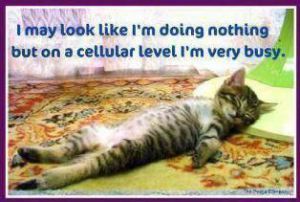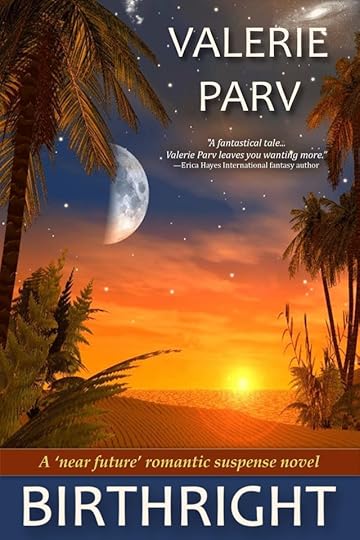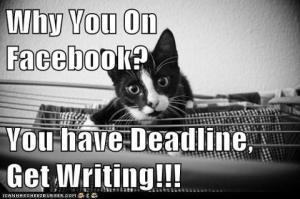Valerie Parv's Blog, page 11
December 1, 2013
Christmas gifts smart writers NEVER give themselves
It’s not only First Monday time again, when I open this blog to your questions about writing and publishing, it’s also the holiday season for people of many beliefs around the world. Someone posted on Facebook that this is the only time Chanukah and American Thanksgiving fell at the same time for 80,000 years. My math isn’t that great, but it is unusual. Hope you all have a wonderful time.
This is also the season for gift giving. I love giving presents (don’t mind receiving them, either LOL) and I enjoy hunting for items I hope will delight my friends and family. As a writer, I love gifts, too. But there are five items I would NEVER give myself and I hope you won’t, too.
1. Long breaks from writing
Yes, it’s holidays and you’ve worked hard all year. Maybe you did NaNoWriMo and managed to write your target 50,000 words in a month. Don’t you deserve some down time? Of course, but be careful. The point of NaNo is to get you writing every day, inspired or not, with a deadline you usually report to other NaNo-ers, keeping yourself accountable. A funny thing about writing regularly is the momentum and confidence you build up. If I don’t write for a few days, I come back rusty, taking time to get up to speed. I also lose touch with my current project and have to get back into that groove as well. Keep in touch with the work. Aim to write 200 words a day, taking the important holidays off. That’s only one page of writing a day. You’ll thank yourself after the break.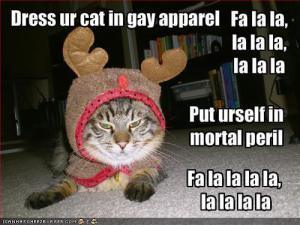
2. Ignore health and wellbeing
It’s easy to do this anyway, with all the parties and feasting. But as well as the damage to your healthy eating plans, food comas befuddle your brain, the organ generating those precious words. Remember to alternate holiday cheer with lots of water, pudding with fruit, and couch time with swimming and walks. The outdoor stimulation may give you new story ideas, win-win.
3. Lack of time
Yes, the season is demanding and rushed. Shops are busy, crowds everywhere, calendars clogged. Giving ourselves the gift of time can be way down the list, if it’s there at all. On your crammed to-do list, include set times to write, or at least to play with story outlines and characters – this can be done on a lounger in the garden. After the holidays when, we’re still at home, is a terrific time to make progress. When the season ends, you’re raring to go because the thinking and planning is done.
4. Second-best equipment
So you’re writing at a wobbly table, sitting on a dining chair, killing your back and creativity. Even if your writing isn’t paying its way yet, think of good equipment as an investment. Use the holiday sales to buy yourself an ergonomic chair. Mine adjusts every which way with a pump gadget to adjust the lumbar support exactly right. Look for a hand-friendly mouse, jelly rest for your wrist, whatever helps you create safely. Your body will thank you. And keep the receipts. When your writing does make money, ask the tax pundits about what you may be entitled to claim back.
5. Giving up on dreams
This is 100% not a gift you should give yourself, ever. In the early days, your self belief is the only thing keeping you going. It takes enough of a battering with rejections from editors or agents, or well-meaning but tough comments from critique partners and writing groups. ALL of the writers who are now legends were once told they couldn’t write, their books didn’t work, they should stick to (insert thankless day job). They persevered and gave us our greatest reading pleasures. They didn’t know they were writing classics, any more than you or I know that now. History is the judge. All we can do is write the best books in us to write, follow our passions even if they’re not trendy, and keep going no matter what the rest of the world says. Best of all, dreams are free. Hold on to them.
What gift would you NEVER give yourself as a writer? Have you come close with any of these? Please share your experiences with us in the comment box below. I regret they must be moderated before appearing, to keep out rudeness and Spam. To have your comment appear right away, click on “sign me up” at lower right. I don’t share your email details with anyone.
Happy holidays and may your words flow freely,
Valerie
on Twitter @ValerieParv and Facebook
Read some reviews of Valerie’s latest book, Birthright
at http://www.valerieparv.com/birthright.html


November 3, 2013
First Monday mentoring for November – 5 selfish reasons to join writers’ groups
Happy first Monday in November, when I open this blog to your questions about writing. They can be on creative, craft or business matters. So ask away using the comment box below, or share your experiences as a writer with others.
I’m sorry that comments need to be moderated to avoid a lot of spam and rudeness we can all do without. To have your comment or question appear immediately, just click on “sign me up” to subscribe. I don’t share email details with anyone.
To kick things off, here’s a question I was asked at GenreCon in Brisbane recently. Why should writers join groups?
We all know the noble answers – to support other writers, share knowledge, give back to the profession yada yada yada. But what do YOU get out of belonging? Here are my five “selfish” reasons. See if you agree.
1. To find your tribe.
It’s human nature to want to belong. We’re tribal animals. As soon as I moved to the country town where I live, I went looking for a writers’ group. It turned out to be one primarily set up for new writers, but I joined anyway. Despite being at different levels of craft and experience, all the group members are writers, first and foremost. They understand the ebb and flow of ideas, and how hard it is to get started sometimes. They are my tribe.
2. To get inside information.
In writing, insider trading isn’t a dirty word, it’s a necessary part of finding your way through the publishing maze. The more you get to know agents and editors via conferences and group newsletters, the easier it is to submit work to them when the time comes. You get to know what they’re looking for and how you should present your work. And they see your membership of a group as a sign of professional commitment.
3. You get encouragement and support
Yes, you support the other group members, but they are also there for you when you need it. Mention that you wrote 200 words today, and your non writer friends will look at you as if you’re crazy. Only 200? What did you do with the rest of your day? Only another writer understands that sometimes writing words is like pulling teeth. Dragging 200 or even 20 words out of your brain is an achievement to be celebrated. Ask anyone taking part in NaNoWriMo (National Novel Writing Month) throughout November, and they’ll tell you what a struggle it is to keep up your word count day after day, with the goal of writing 50,000 words by month end. You need your cheer squad.
4. Misery loves and needs company
Getting a rejection from a publisher or agent can be crushing. They’ve told you that your brain child is ugly. This is a lot to bear, and only your fellow writers fully get what you’re going through. They also understand the importance of a “good” rejection, when your work may not have crossed the finish line yet, but it’s still in the race. Non writers don’t understand a good rejection, but we do.
5. Celebrating your milestones
In the writing business, the steps to success can be a long way apart. From an editor requesting your partial manuscript, to asking to see the full (manuscript), then sending suggestions for revision, perhaps in a couple of rounds, to accepting the book – yay – can take a year or longer. Non writers only see two steps – submitting the book and becoming J K Rowling. Nothing in between makes sense to them, the way it does to us. Other writers will help you celebrate each step and cheer you on to the next. They won’t think you’re a failure because your book has taken a year of work and still isn’t “out there.” We know you’re making progress.
What do you get out of knowing other writers, either online or in person? Share your experiences via the comment box below, or ask a question and I’ll do my best to answer, cheer you through whatever stage you’re at, or pop the virtual champagne when you get there.
Valerie
on Twitter @ValerieParv and Facebook
Read some reviews already up at http://www.valerieparv.com/birthright.html


October 6, 2013
First Monday Mentoring for October – are you writing or wasting time?
Hi and welcome to First Monday Mentoring for October. If you have questions about writing and publishing, I answer them here. Post your thoughts, argue with mine, share your experiences. This is the day for it, heck, sometimes we take the whole week.
I regret I have to moderate comments to deter spam and rudeness. To have your comments appear right away, click the ‘sign me up’ button at lower right to subscribe. I don’t share your email address with others.
Here’s a question on the minds of many of us: should we be writing more, or does staring out of windows count as work?
Firstly, it helps to accept that stories come in their own time. I can be leafing through magazines or playing online, sometimes for days, while the work sits there driving me crazy. Why can’t I get on with it?
Simply put, I can’t get on with it any more than you can will a baby into existence much before nine months. Your brainchild – the child of your brain – needs its own gestation period to grow.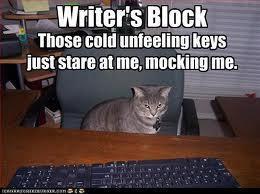
As well, new story ideas are often a spark rather than a plot. What if a man discovers the single mother he’s hired as his PA is still a virgin? This is a spark, needing more layers if it’s to work as a book. For instance, what if the baby isn’t the heroine’s and she is out to get revenge for the hero’s mistreatment of the real mother, the heroine’s sister? Now we’re getting somewhere. FYI this idea became Baby Wishes and Bachelor Kisses, part of Big W’s newly launched ebook range at http://ebooks.bigw.com.au/search?q=valerie+parv&x=0&y=0
How do you know whether you’re in this gestation period or wasting time? Try looking at the writing you’ve done over the last months or years. If you’ve finished a manuscript or two, some plot ideas and contest entries or submissions to editors, you have a body of work and the daydreaming time is a normal part of your process.
Every writer works at a different pace. Nora Roberts has writer’s block. She just has it in shorter bursts than most of us. It’s also true that a story may resist you because you’ve gone off track. Do you need to start further in, choose another viewpoint character to tell the story, or add a twist to surprise the reader?
Repeat after me: writers are working when we’re staring out of windows. Or when we do boring tasks like mowing lawns or doing dishes. Taking the pressure off yourself can be the best way to get a story going. How do you keep your writing moving? Share your experiences by leaving a comment here.
Valerie
on Twitter @ValerieParv and Facebook
Read some reviews already up at http://www.valerieparv.com/birthright.html


September 1, 2013
First Monday Mentoring for September: when NOT to change your writing
Happy first day of Spring, and welcome to First Monday Mentoring for September. Today I open the blog to your questions about writing and publishing, and answer them here. Post your questions and ideas, argue with mine, share your experiences. This is the day for it, heck, sometimes the whole week.
I regret having to moderate comments before they appear. But turning that off leads to spam and rudeness we don’t need. To have your comments appear right away, click the ‘sign me up’ button at lower right to subscribe. I don’t share your email address with others.

To start us off, here’s a question from the Romance Writers of Australia’s Claytons online conference, raised again when I was judging RWA’s Valerie Parv Award. The 2013 award was announced at the national conference in Perth recently.
The question is: how do you know when to change your writing and when to stand your ground?
The answer comes down to Matter versus Manner.
Matter is what you want your story to say.
Matter includes your theme, your “message” if you have one. For example, “love conquers all” is the message of many romance novels. If your story carries this message, no critique partner, editor or well-meaning relative should ask you to change it. They may disagree, but you are entitled to have your writing express what you truly believe.
Manner is HOW you tell your story
This includes your word choices, settings, character behavior and any other means used to tell the story.
Manner is ALWAYS open to negotiation. As writers, we know what we mean to say. But if crucial details don’t make it into the manuscript, readers can be left scratching their heads. An editor’s job is to spot problems and inconsistencies for the writer to fix. There’s no point defending the work. If the editor misunderstood something, thousands of readers will, too.
So there it is. Matter – what the story is about – is up to the writer. Manner – how you tell the story – is the editor’s concern. Ideally, both of you want the same thing – a well-told story that readers understand in the way you intended.
Do you have questions or “war stories” about editing? Share them by leaving a comment below.
Valerie
on Twitter @ValerieParv and Facebook
Read some reviews already up at http://www.valerieparv.com/birthright.html


August 23, 2013
5 ways to keep readers out of your story world
As a writer I’ve done all five things until I learned better, and so can you. Keeping readers out of your fictional world can be as simple as not giving them the information they need to “be there” with your characters. This idea arose out of Facebook, when I compared notes with friends about what advertising we were seeing. Depending on what pages they “liked” or commented on, some saw anti-aging and diet products, others saw cars and travel. One day I was invited to have “famous hair.” Go figure.
The point is, we don’t all see the world the same way. Most of us know this intellectually, when we need to get it at the gut level. How readers see and react to what we write depends on it. If we don’t all see the world the same way, or only see certain bits of it, how can we be sure our writing isn’t keeping readers out, when we want to draw them in and make them forget they’re reading something we made up?
Here are five ways readers can be shut out of our stories. See if you recognise any of them.
1. Use lazy words
Words like short, tall, old, young are lazy words. They represent our view of the world. In my workshops, ages go from teens to eighties. Asking who considers themselves old gets few hands in the air, except for the odd joker, usually someone younger than me. Old and young depend on your OWN age and the goal posts shift with each birthday. We’ve all heard toddlers call someone in their twenties old, while headlines say, “60 is the new 40.” The solution is to “show, don’t tell.” Simply put, this means show the reader what’s there, rather than tell them what to think. Wrinkled skin, thinning hair, stooped build can all suggest a mature character. Describe what’s there and leave the rest to us. Ditto tall. Show the character ducking under a doorframe, or their feet overhanging the bed. Show us the character in enough detail for us to draw our own conclusions.

We don’t all see the same things on Facebook or in the world.
2. Don’t be consistent
Science fiction and fantasy are fun to write. You can imagine the world any way you want. But having set the rules, you must obey them from then on. No good having gravity turn off every day at noon for an hour, then forget next day and have characters sit down to lunch. Or turn blue-eyed Sandy into brown-eyed Susan between chapters. Characters need to be consistent as well. If Susan is thrifty because of a poverty-stricken background, don’t give her designer clothes without a good reason, a splurge she may feel guilty about, or a conscious decision to fight her conditioning.
3. Don’t get specific
I can’t mention a tree in my books without knowing the species, whether it’s in flower (which dictates the book’s season) and other details. I may not use them all in the narrative, but I need to know them. Through the magic of Google. I can find exactly the Russian swear word, unusual computer bug, or character illness I need to make the book work. It’s said that the best way to hide information is on page two of a Google search, but I’ve gone through twenty or more pages to find exactly what I need. Get specific and you will draw readers into your story world.
4. Don’t stretch yourself creatively
Whole blogs are written about the language used in romance novels. None of your prose should be in there. Avoid purple prose (over-written descriptions); cliched character actions – looking in a mirror while you describe them; misunderstandings where the heroine thinks the hero is kissing another woman. Heroine then storms out without waiting to learn the woman is his sister. First decide what you want the scene to achieve. If it’s to separate the characters while they discover they love each other, what’s the most original way to show this? I make lists, challenging myself to come up with twenty or more ways this could be achieved. The first few will be the cliches, the repetition, the boring. The next few will be wild flights of fantasy, then slowly I’ll get to the nuggets of gold. Sometimes two or more points can be combined to achieve my goal. This method has never failed me.
5. Don’t finish what you start
This is guaranteed to keep readers out of your story world, because the point of entry is the finished book. Whether on a device or in print, your book must be where readers can access it. Erica Jong famously said for a long time she avoided finishing anything. As long as it was work in progress, it couldn’t be rejected. Your book will never be perfect. Using the points here can get you a lot closer, but the last step – putting your story in front of an agent or editor – is essential. As a writer friend put it, “books in my head will never get read unless I get up and write them.”
Do any of these sound familiar to you? Do you keep readers out of your story world? How have you overcome these problems? Please leave a comment here.
Valerie
on Twitter @ValerieParv and Facebook
Read some reviews already up at http://www.valerieparv.com/birthright.html


August 4, 2013
First Monday Mentoring for August – handling your writer’s grumpy brat
Today is the first Monday in August – how did that happen? Today I open the blog to your questions about any aspect of writing and publishing, and answer them here. The blog is read by many terrific writers who add their thoughts or experiences. Post your questions and ideas, argue with mine, share your war stories. This is the day, heck, sometimes the whole week.
I regret the need to moderate comments before they appear. But turning that off leads to an avalanche of spam and rudeness we can do without. To have your comments appear right away, click the ‘sign me up’ button at lower right to subscribe. I don’t share your email address with others.
To kick things off, I’m addressing a problem all writers share – dealing with our inner grumpy brat. You can be a New York Times bestseller or an emerging writer, but sooner or later Grumpy Brat Writer will appear, usually when you’re facing a deadline or a contest closing date. You need to be ready. Just like a parent in a supermarket when their toddler throws themselves down on the floor and screams blue murder, you need coping strategies to stop your Grumpy Brat Writer from winning the day.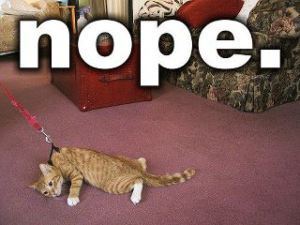
Here are 5 things you’ll hear Grumpy Writer Brat whine:
1. I don’t wanna
GBW never wants to do anything, especially if it involves work. And most writing involves a LOT of work. GBW would much rather play with her friend, Google, on research sites. Even then, she may start out on topic and be distracted by the first shiny link that comes her way. Which leads to another link and another until your research topic is a speck on the digital horizon. She also loves toys. Solitaire is to GBW what Lego is to most toddlers, and just as hard to get them to put away.
The solution: GBW loves rewards. Don’t wait until the end of a project (or dog forbid, a whole book) to reward her. Give her little treats along the way. They can be time outdoors, a little taste of chocolate, a phone call to a friend, or some reading time when she does what you want.
2. Why do I hafta?
This goes to the question of motivation. Writers have to be self disciplined to get anything done. Unless you have a publishing contract, no one is pushing you to finish the book. Non-writer friends and family don’t get why it isn’t done in a week. And without a goal, you’ll find GBW cleaning out the refrigerator, brushing the cat, or lining up pens in colour coded rows.
The solution: Motivate GBW with whatever works. Enter a contest with a submission date. Choose one that you can meet without too much stress, but that’s close enough to keep you at the keyboard. Tell your writer friends you’re writing. If you’re on Twitter, use a hashtag like #amwriting. Hashtags are like secret handshakes. They link together people who are otherwise unconected. but share a common interest – like getting the writing done. Sign up for NaNoWriMo – National Novel Writing Month. These days Nano is international. Participants aim to write 50,000 words during November. Nobody says they have to be good words, although published novels have come out of these rough drafts. If all else fails, buy a cute kitchen timer and set it for ten minutes. Almost anybody can stay on task for ten minutes. Tell GBW that’s all she has to do, write until the timer goes off. Chances are she’ll still be going after the timer rings. And if not, reward her and come back for another 10 minute sprint later.
3. Are we there yet? (usually repeated over and over)
We’ve all heard GBW on this. She wants the work finished and the fun to start. Especially if you’re writing a book, the finish line can be months and sometimes years away. No wonder GBW gets restless and whiny.
Solution: The kitchen timer in #2 helps to let GBW know when she’s “there” at least in the short term. Choosing a set number of words you’ll achieve each day no matter what and not stopping until you’re “there” can help. Even if your goal is as few as 200 or 500 words, make a deal with GBW that you won’t stop until they’re written. If you write more than your goal, great, but beware of writing 4,000 words and then finding you can’t write again for several days. Slow and steady wins the race.
4. No! (said with jutting out lower lip and folded arms)
Sometimes I think this is the first word that GBW learns. Whatever we ask of her, we get the one word answer and the stubborn body language. How can you deal with such an implacable, “No?”
Solution: GBW is looking out for herself, but she also has an almost subliminal sense of what else is going on with your work. Every time I’ve come up against GBW’s flat refusal to co-operate – every time – it’s been because the writing is going in the wrong direction. Coming up against that “No” leads me to look at what my characters are doing. Is this where the book should be at this time? Could I change settings or characters? Add a new character? Have somebody produce a gun? Magically, as soon as I address what’s bothering GBW, she starts saying yes to me.
5. Hers is bigger/better/shinier
This is GBW looking around and wanting what other writers have. Whether it’s a publishing contract, a prize, an award, great cover art or fantastic reviews, the little green monster brings out the worst in GBW. Often, she’s so consumed with the shiny goodies others seem to have that it stops her from writing anything.
Solution: tell GBW it’s okay to feel jealous. Maybe the other person does have a bigger better shinier whatever. On the other hand, they may also have ill health, financial woes or family issues GBW doesn’t know about. Most of us show the world our best side, but there’s nearly always a dark side lurking. Remind GBW about this and also of the line from the Desiderata, “Never compare yourself to others, for always there will be greater or lesser persons than yourself.” While GBW is busy envying other writers, just as many would like to be her.
How does your Grumpy Brat Writer show his or herself? How do you deal with it? Share your thoughts and experiences here.
Valerie
on Twitter @ValerieParv and Facebook
Read some reviews already up at http://www.valerieparv.com/birthright.html


June 30, 2013
First Monday Mentoring for July – don’t be a no-account writer
Today is the first Monday in July, when I open this blog to your questions about writing, publishing or any aspect of the process, and answer them here. The blog is read by many terrific writers who’ll add their thoughts or experiences to the mix. Post your questions and ideas, argue with mine, share your war stories. This is the day, heck, sometimes the whole week.
I regret that comments must be moderated before they appear. But turning that off leads to an avalanche of spam and rudeness we can do without. To have your comments appear right away, click the ‘sign me up’ button at lower right to subscribe. I don’t share your email address with others.
To kick things off, I’m looking at accountability. The new financial year (in Australia, anyway) makes us think of accounts in the money sense. How much or how little did you earn? And where did it all go? How can you manage better this financial year? When can you give up your day job? All fodder for a later blog.
There’s a kind of accounting that can make or break your writing future. It’s your output. It’s OK to want to BE a writer. A lot of the time, being a writer is more fun than writing. Attending groups, workshops, posting on Facebook and Twitter, reading craft books and critiquing friends’ manuscripts are all part of the scene, but they’re not writing.
As author, Neil Gaiman, says, “Put one word after another. Find the right word, put it down.” That’s writing. Set yourself a word target you commit to meeting no matter what. It doesn’t have to be seven days a week, or an impossible number. Writing 500 words a day every week for six months gives you a 60,000 word manuscript, the length of a novel these days. And that’s with weekends off. 500 words is about two typed pages.
Recently a writer friend, Diane Curran, posted on Facebook that instead of asking members of her group what they wanted the group to do for them over the next year, she asked them to name their writing ambitions. Then asked what they needed to do by the next monthly meeting to get them closer to their goals. As Diane said, making the members accountable for their progress kept her accountable, too.
There are many ways to make yourself step up. NaNoWriMo, National Novel Writing Month, is probably the best known. It’s an international must-do for thousands of people who commit to writing 50,000 words during November. Some make the total, some far exceed it. Others do 20,000, 30,000 or whatever they can manage. But every one of them produces more than they would have going solo.
In June, Romance Writers of Australia runs 50k in 30 days. https://romanceaustralia.wordpress.com/2013/05/31/need-a-push-to-get-the-words-down-50k-in-30-days-is-here/ Then there are “sprints” when writers challenge each other to achieve targets such as #1k1hr on Twitter. This stands for one thousand words in one hour. You simply tweet that you’re looking for a 1k1hr partner to start sprinting at the quarter, half or full hour mark. You don’t have to know your partners or live in the same country. Adding the #1k1hr hashtag to your tweet links you up. You write like crazy, achieve whatever part of 1,000 words you can and report back an hour later, using the same hashtag. Sure, you can lie, but this is all about being accountable. Writing is an account of…your character’s adventures….and yours, too.
What does accountability do for you? How do you achieve it? Share your thoughts and experiences here.
Valerie
“In conversation” about romance writing at Southern Highlands Writing Festival in Bowral NSW July 12-14
on Twitter @ValerieParv and Facebook
Read some reviews already up at http://www.valerieparv.com/birthright.html


June 2, 2013
First Monday Mentoring for June – a writer’s to-don’t list
Happy first Monday in June, the day when I open this blog to your questions about writing. They can be on creative, craft or business matters. You can also share your experiences as a writer with others.
I’m sorry that comments need to be moderated before they appear. I’m often tempted to turn that off, but friends who’ve done so report an avalanche of spam and rudeness we can all do without.If you’d like your comments to appear right away, click the ‘sign me up’ button at lower right. I don’t share your email address with others.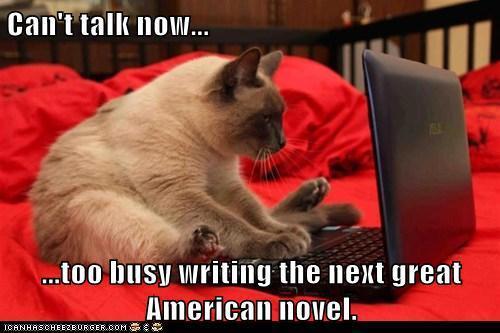
I do share blogs and information I find exciting. My new fav find is a blog called Marc and Angel Hack Life. Their thoughts and comments on living are well worth reading (and subscribing as I’ve done). Recently they blogged about making a “to don’t” list here http://www.marcandangel.com/2013/05/28/7-things-you-need-to-stop-doing-every-day/#more-621 Right click on the link to open in a new tab without closing this one.
Most people have a “to do” list, many are pages long  For writers, here are some things for your “to don’t” list. Since it’s First Monday, feel free to share what you’d add to the list.
For writers, here are some things for your “to don’t” list. Since it’s First Monday, feel free to share what you’d add to the list.
DON’T compare yourself to others
This month, Romance Writers of Australia are running 50k in 30 days – not as someone thought, 50 kilometers, but 50 thousand words during June. Like NaNoWriMo (National Novel Writing Month) in November, these are ways to get writers writing instead of hoping, dreaming or planning. Both events involve reporting progress to a group or forum. This is where things get sticky. If other writers are reporting 2,000, 3,000 or 5,000 words and you wrote 500, how do you feel? Under the ‘don’t compare’ rule, you feel pretty darned good. You wrote 500 words. Over 30 days, that totals 15,000 words. Keep going for 5 or 6 months and you’ll have a novel, just by writing 500 words a day. Your output is your output.
DON’T wait till you’re ready
As Henry Ford famously said, you can’t succeed by what you’re going to do tomorrow. Today, this minute, is all we have. Start writing now. Pour your thoughts and ideas onto the screen or page then edit afterward. Same with research. Leave gaps where you need to look something up. I write “tk” a printer’s mark for “to come” when I need to find some important detail. Get that first draft down without interrupting or second-guessing yourself. Only then can you edit, correct, fill in gaps and – as I do – layer in elements you missed first go round.
DON’T expect perfection
By all means aim for wonderful, but settle for whatever comes as long as it’s the best you can do at the time. Remember, if you shoot for the moon and miss, you’ll still land among the stars. And don’t use perfectionism as an excuse. Erica Jong wrote that for years she never sent any work out. As long as it was ‘work in progress’ it couldn’t be rejected. Fear of rejection, of not being good enough, is an occupational hazard writers must learn to live with. Write anyway.
and most importantly…
DON’T give up
Every writer I’ve ever met, whether New York Times bestseller or not, has moments of thinking their success is a fluke. Multi award winning romance writer, Marion Lennox, says she still expects her publishers to tell her it’s all a mistake and want their money back. It won’t happen. Nor does Marion let anything stop her from writing her books. That’s the bottom line. DON’T stop writing.
This is First Monday so the blog is open to your thoughts, ideas and questions. What would be on your ‘to don’t’ list?
on Twitter @ValerieParv and Facebook
Read some reviews already up at http://www.valerieparv.com/birthright.html


May 12, 2013
Are You Writing or Working?
Yesterday I was talking to a friend when she said, “I’ve finished writing for the day. Now I have to go to work.”
Excuse me?
I’ve heard variations on this so often that I feel a blog is needed.
I was also inspired by today’s post by Ebony McKenna – http://www.melbournerwg.com/1/post/2013/05/its-fine-to-have-a-hobby-by-ebony-mckenna.html – on the Melbourne Romance Writers’ Guild blog, where she says:
…perhaps it’s time to step back for a moment and have a think. Do you write for fun? Excellent. Keep doing it. Does the thought of sending your story out into the world, to be ripped apart by critics kill you inside? Good then, don’t do that. Do the bit you love, without the other stuff. The pressure stuff, that will suck all the joy from your hobby.
She’s right of course. Hobbyist painters can happily paint for their own enjoyment without expecting the Louvre to come knocking. Singers join choirs, and actors volunteer with local drama societies, giving pleasure to huge numbers. Why can’t writers enjoy writing as a hobby?
Many do, of course. Some writing groups let members read work aloud for the satisfaction of sharing their words. You can write journals, competition entries, blogs, family histories. As Ebony says, “Don’t get drawn into the competitive nature of writing as a full time job. Write for the pure, simple joy it brings you. Write for yourself. Write to feed your heart.”
But if feeding your heart isn’t enough and you want to be published, you have to start seeing your writing as real work. You need to learn all you can about the craft and stay current with the publishing industry. All while writing regularly, around a day job, family commitments and life in general.
After writing over 80 published books plus film scripts, novellas, articles, short stories and blog posts; assessing work by my “minions” in the Valerie Parv Award;as well as words for promotional copy and cover blurbs, I guarantee it’s work with a capital W.
And it never stops.
Unlike most jobs, a writer’s work follows us everywhere, interrupting sleep, restaurant meals, holidays and TV programs. We spend half our working lives waiting – for editors, for publication, reviews, sales…while wrestling with the next project. As I said in my last blog, writing is one of the toughest gigs around.
Hobby or work? It all depends on why you write, and where you dream of going.
Why do you write? I look forward to sharing your comments here.
Valerie
on Twitter @ValerieParv and Facebook
Read some reviews already up at http://www.valerieparv.com/birthright.html


May 5, 2013
First Monday Mentoring for May – 5 ways to know you’re a writer
Happy first Monday in May, the day when I open this blog to your questions about writing. They can be on creative, craft or business matters. No question is stupid except, as the saying goes, the one you didn’t ask. So ask away using the comment box below. You can also share your experiences as a writer with others.
I’m sorry that comments need to be moderated before they appear. I’m often tempted to turn that off, but friends who’ve done so report an avalanche of spam and rudeness we can all do without.
To kick things off, here’s a question I was asked while attending Conflux National Science Fiction Convention in Canberra. The event was wonderful, attended by writers, editors, publishers and fans of fantasy and SF. During a coffee session, I was asked, “How do you know if you’re a writer?” A good question.Time is precious.No-one wants to slave away on stories that are going nowhere. Here are some clues that might help.
1. You look at stories differently
You read a book, watch a movie or TV show and mentally write a better ending. You get impatient because you know who the villain is before anyone around you. A pen on a desk is never just a pen. It’s a potential weapon and you’ve already thought of a dozen ways it could be used. You’re either a psychopath or a writer, possibly both.
2. You feel things more acutely
You lose someone and while grieving, store away the feelings in case a character can use them later. You attribute motives to actions, even if the person doing them was merely acting on impulse. As a writer, you know that actions must be motivated, even if not in real life.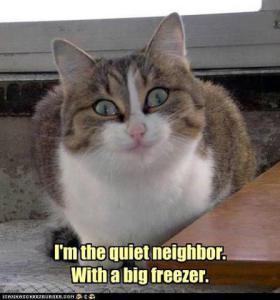
To a writer, everyone & everything is a story
3. You observe everything
Yes, even your own suffering. As writer, Anne Lamott says in her wonderful Bird by Bird, if you’re held up, you don’t actually think, “So this is what it’s like staring down the barrel of a gun” but you come close.
4. You turn everything into a story
You wonder if you’re heartless because you channel your tragedies and suffering into story ideas. Judy Nunn calls this meta-observing “the third eye.” All writers have it, and we can’t turn it off.
5. You set the bar high
I’m convinced we write to prove to ourselves that we can do it…again and again. After quitting my day job, I wrote the same number of words full-time as part-time, because I expected more of myself. Make the New York Times bestseller list? Next time aim for #1 spot. Sell half a million copies? Next time it better be a million.
Far from being a cruisy, wrist-to-forehead profession, writing is one of the toughest gigs I know. How did you find out you were a writer? What’s good and bad about it for you? Love to share your comments.
Valerie
on Twitter @ValerieParv and Facebook
Read some reviews already up at http://www.valerieparv.com/birthright.html


Valerie Parv's Blog
- Valerie Parv's profile
- 30 followers


